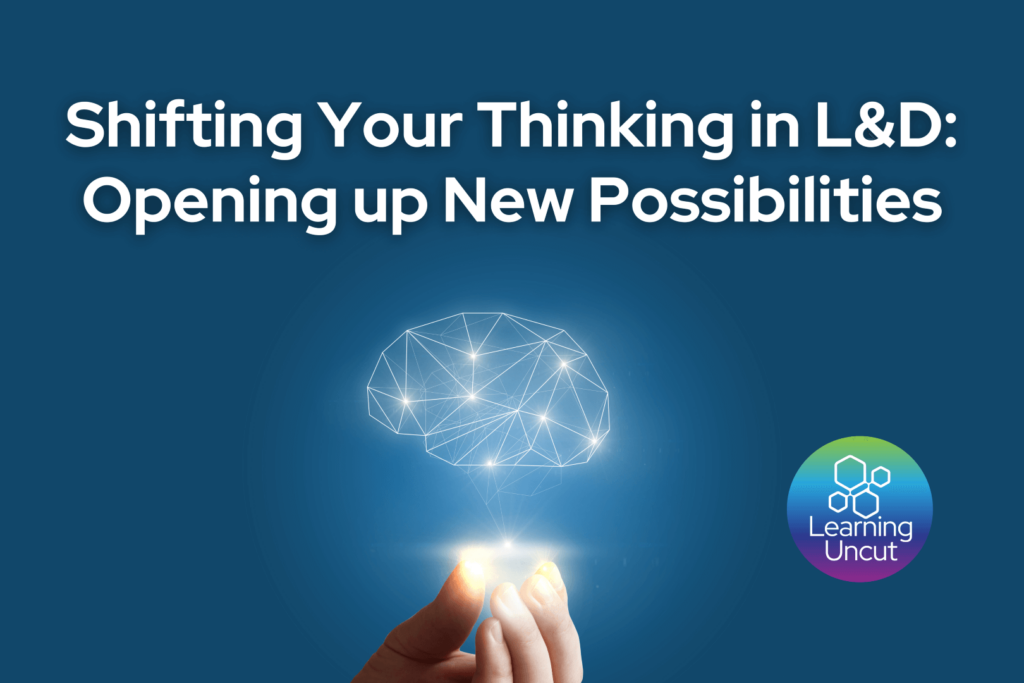The world of work is changing fast. Technology is advancing, workforce expectations are shifting, and new skills are needed to keep up. For Learning and Development (L&D) teams, this presents a dual challenge: staying relevant in a rapidly evolving workplace while setting an example for others.
One way to tackle this is through Capability Discovery – a process that helps L&D teams identify their strengths, uncover gaps, and build the skills they need. It’s not just about keeping up; it’s about leading by example. When L&D teams prioritise their own development, they show others what continuous learning looks like.
Here’s how Capability Discovery can help your team prepare for the future and model effective practices for the rest of your organisation.
Why Capability Discovery Matters
Capability Discovery is like taking stock of your toolkit. It gives you a clear picture of the skills your team has today and the ones you’ll need tomorrow. Yet many L&D teams aren’t doing this regularly. According to the Learning Performance Benchmark1 only 18% conducted a skills audit in 2022, with that number climbing slightly to 24% in 2023. Compare this to high-performing L&D teams, which are over three times more likely to audit their capabilities.
For L&D this isn’t just about staying sharp – it’s about credibility. If we expect others to prioritise their development, we must do the same. Leading by example reinforces trust and positions L&D as a leader in continuous learning.
Real-World Example: In 2019, Waka Kotahi New Zealand Transport Agency embraced Capability Discovery when they centralised their L&D function. They started with a skills review for their leadership team which demonstrated commitment and set the tone for the rest of the team. This early step helped build alignment with their broader learning strategy.
Building, Testing, and Modelling Effective Practices
Building Practices
Treat an L&D Capability Discovery as an opportunity to develop potentially repeatable and scalable process supported with tools such as self-assessments, peer and/or manager reviews and heat maps. The goal is to build an approach that not only works for your team but can be adapted to meet the needs of other teams or functions later.
Testing practices
Your own Capability Discovery is a testing ground for your approaches. It gives your team an opportunity to experience the process as a user – providing insights to help improve the experience before introducing elsewhere.
Modelling practices
The way you approach Capability Discovery sets an example for the rest of your organisation. Framing it as an opportunity for growth rather than an ‘assessment’ creates trust and buy-in. It’s a chance to show how development processes can feel empowering rather than intimidating.
Real-World Example: Waka Kotahi created detailed skills profiles for their team, including new areas like storytelling and relationship management. By mapping current and target skills, they were able to prioritise key development areas and model commitment and transparency to Capability Discovery.
Four Good Practices for Capability Discovery
Here are four practices I’ve seen help L&D teams succeed with Capability Discovery:
Start broad then prioritise
Begin with a full review of all L&D skills but focus your efforts on the most critical skills for achieving your strategy. This ensures you understand your team’s overall capabilities and can direct each person to where they’ll make the biggest difference and/or build their skills.
Use diverse skills validation methods
Combine self-assessments, project work, manager reviews and other approaches to validate skills.* A variety of methods gives you a more accurate and well-rounded picture of your team’s strengths and gaps.
*Refer to this article from Sandra Loughlin about the range of skills assessment methods used by global engineering consultancy EPAM
Encourage a growth mindset
Frame the process as an opportunity for learning, not a test or an assessment of their performance. Even L&D people get nervous about the idea of their skills being ‘audited.’ Call the process a ‘Discovery’ rather than ‘audit.’ Be clear about why you are doing it, how the outcome will be used, and the benefits individuals and the team. Clarify data privacy. This approach helps reduce defensiveness and encourages your team to embrace the process.
Act on insights
Focus on developing a small number of skills which will have the highest impact on your team’s upcoming work. This makes the process manageable and ensures measurable progress, building momentum for future development.
Real-World Example: Waka Kotahi used a full skills review to understand their team’s capabilities. They then focused on developing three interrelated skills with high impact on business value – performance consulting, evaluation, and data analytics – and achieved measurable improvements within a year.
“Our Capability Discovery helped our team members to reflect deeply on where the learning profession is heading and how to invest in their own development.”
– Waka Kotahi
Connecting Capability Discovery to Organisational Impact
Capability Discovery doesn’t just benefit your team – it has ripple effects across your organisation. When L&D teams prioritise their development, it enables:
- Better talent mobility: Skills mapping helps identify transferable skills, opening up new opportunities for employees.
- Innovation in role design: Understanding skill gaps can inspire new roles or refine existing ones.
- Agility in the face of change: With a clear sense of readiness and clarity on the skills available across the team, L&D can adapt more quickly to new challenges.
Real-World Example: By focusing on performance and impact-related skills, Waka Kotahi positioned their team to support broader business goals. Their work enhanced both their team’s effectiveness and their organisation’s ability to achieve strategic outcomes.
Get Started with Capability Discovery
Capability Discovery is more than a box to check – it’s a powerful way to prepare your team for the future and show others how it’s done. By focusing on your own development, you can close skill gaps, build integrity and credibility and deliver greater value to your organisation.
Waka Kotahi’s journey is proof that commitment, focus and collaboration can drive real results. Now’s the time to act and see how Capability Discovery can help build your L&D team – and drive your organisational impact.
Ready to get started? Use this link to book a free 30-minute call with Michelle Ockers at Learning Uncut to discuss how Capability Discovery can help your L&D team close skill gaps and build for the future.
1 Mind Tools for Business 2022, Annual L&D Benchmark Report 2022 and Mind Tools for Business 2023, Annual L&D Benchmark Report 2023: Part Two of Three


